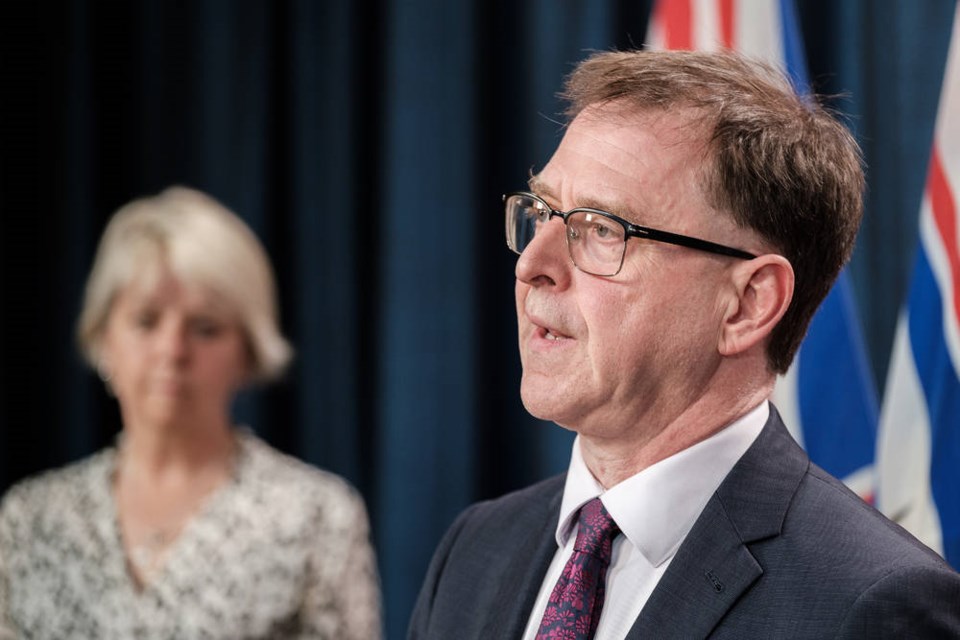There was an easy way to avoid the weekend furor over the revelation that there are more comprehensive, detailed pandemic updates than the ones being made public.
Just touch a key and release them routinely. There might be a burst of intense interest, maybe some initial confusion and then people would acclimate. They would process or ignore the new information with all the other data, as they see fit.
The loose model for this is called proactive disclosure. Instead of employing people to comb records in response to requests for information, just post everything routinely.
A cynic might call it “burying the news in plain sight.” But it leaves governments on much more solid ground when issues of information management or suppression arise.
No secrets. Everything is out there. Make of it what you will.
There are legal and ethical constraints on health information that get in the way of advocating that as a blanket approach to everything that comes out of the B.C. Centre for Disease Control.
But the downside to the alternative way of handling it played out Monday, when the NDP government was roughed up by Green Leader Sonia Furstenau and the B.C. Liberal opposition for keeping secrets.
Premier John Horgan’s claim that B.C. is “the most transparent jurisdiction in the country” was dissected in light of Friday’s Postmedia story about more extensive COVID‑19 weekly reports that are not made public.
At least two of them have been compiled and they include more information, including case and vaccination rates at the neighbourhood level, rather than by health authority.
It’s not that the information is vital, although some independent researchers could probably make good use of it. It’s the appearance left that some aspects of the threat are being suppressed.
“So much for the promise of transparency,” said interim Opposition Leader Shirley Bond. She said people were being kept in the dark and not all the Centre for Disease Control information available was being shared.
Horgan told her people are more interested in fighting COVID-19 and lashed out at the Liberals’ track record.
Health Minister Adrian Dix disputed that information was kept secret, saying some elements have been reported routinely “and indeed, the document … is shared with more than 100 people who are involved in developing the public health response.”
So it’s important enough for the ranking insiders, but not us.
Furstenau said people have to trust government and government has to trust people with information. The government chose to keep the public “under informed.”
She said the NDP has a growing issue with transparency and “a refusal to give up control of the narrative.”
She asked Dix: “Will this government accept their fault in withholding information and commit to full transparency moving forward?”
Dix skirted the question, but eventually said: “We’ll continue to provide more if the public is interested in that and needs that.”
He left it to provincial health officer Dr. Bonnie Henry to fill in the details.
At Henry’s later briefing, she defended the B.C. Centre for Disease Control’s information management. The two leaked reports were health surveillance data that’s been shared widely with team members. The information gets posted on the BCCDC website, she said.
She also noted rigid privacy requirements for patient information. Henry said the scale of the data has narrowed over time from health authority to local health areas to community service areas. The more cases there are, the more anonymized the data is, which allows for more specifics.
Data reporting is going to get more detailed, starting this week. Henry said new maps will be released Wednesday showing the case and vaccination rates in specific areas.
Dix said just four pages of the leaked reports that prompted the controversy weren’t reported and they will be released.
The takeaway seems to be that, in the information age, more information is always better than less.
Just So You Know: The police road checks to curtail regional travel produced zero tickets and turned only a handful of people back, but Dix said they’re still working.
“The idea is not to fine people,” he said. The idea was to deter travel and give people plenty of warning. “I think that message got out very clearly.”



